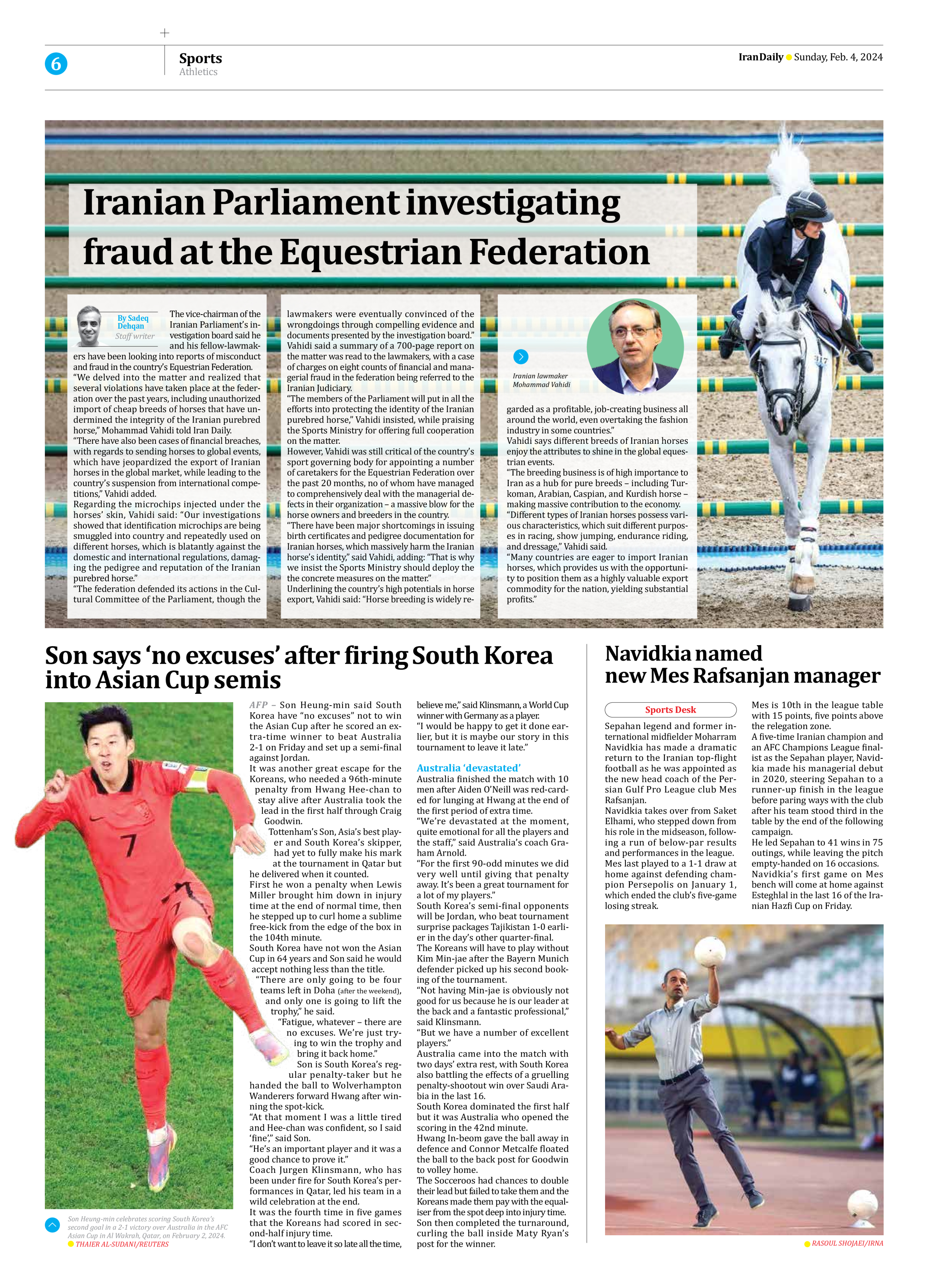
Iranian Parliament investigating fraud at the Equestrian Federation
By Sadeq Dehqan
Staff writer
The vice-chairman of the Iranian Parliament’s investigation board said he and his fellow-lawmakers have been looking into reports of misconduct and fraud in the country’s Equestrian Federation.
“We delved into the matter and realized that several violations have taken place at the federation over the past years, including unauthorized import of cheap breeds of horses that have undermined the integrity of the Iranian purebred horse,” Mohammad Vahidi told Iran Daily.
“There have also been cases of financial breaches, with regards to sending horses to global events, which have jeopardized the export of Iranian horses in the global market, while leading to the country’s suspension from international competitions,” Vahidi added.
Regarding the microchips injected under the horses’ skin, Vahidi said: “Our investigations showed that identification microchips are being smuggled into country and repeatedly used on different horses, which is blatantly against the domestic and international regulations, damaging the pedigree and reputation of the Iranian purebred horse.”
“The federation defended its actions in the Cultural Committee of the Parliament, though the lawmakers were eventually convinced of the wrongdoings through compelling evidence and documents presented by the investigation board.”
Vahidi said a summary of a 700-page report on the matter was read to the lawmakers, with a case of charges on eight counts of financial and managerial fraud in the federation being referred to the Iranian Judiciary.
“The members of the Parliament will put in all the efforts into protecting the identity of the Iranian purebred horse,” Vahidi insisted, while praising the Sports Ministry for offering full cooperation on the matter.
However, Vahidi was still critical of the country’s sport governing body for appointing a number of caretakers for the Equestrian Federation over the past 20 months, no of whom have managed to comprehensively deal with the managerial defects in their organization – a massive blow for the horse owners and breeders in the country.
“There have been major shortcomings in issuing birth certificates and pedigree documentation for Iranian horses, which massively harm the Iranian horse’s identity,” said Vahidi, adding: “That is why we insist the Sports Ministry should deploy the the concrete measures on the matter.”
Underlining the country’s high potentials in horse export, Vahidi said: “Horse breeding is widely regarded as a profitable, job-creating business all around the world, even overtaking the fashion industry in some countries.”
Vahidi says different breeds of Iranian horses enjoy the attributes to shine in the global equestrian events.
“The breeding business is of high importance to Iran as a hub for pure breeds – including Turkoman, Arabian, Caspian, and Kurdish horse – making massive contribution to the economy.
“Different types of Iranian horses possess various characteristics, which suit different purposes in racing, show jumping, endurance riding, and dressage,” Vahidi said.
“Many countries are eager to import Iranian horses, which provides us with the opportunity to position them as a highly valuable export commodity for the nation, yielding substantial profits.”







